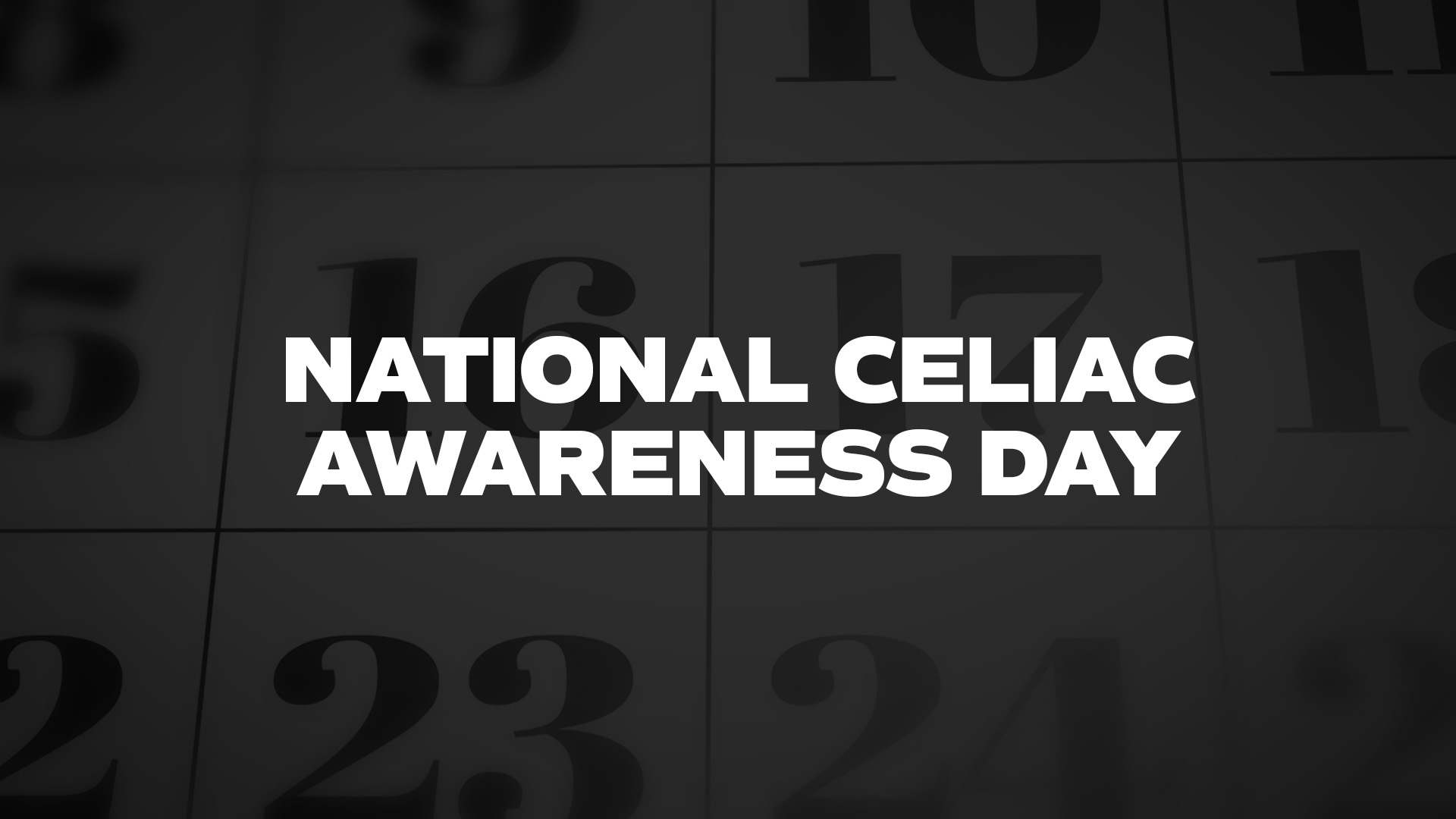National Celiac Awareness Day is an annual event to raise awareness about celiac disease, a genetic autoimmune disorder that affects the digestive system. It is a day to educate people about the symptoms, diagnosis, and management of celiac disease, and to promote understanding and support for those who live with the condition.
#HASHTAGS
#NationalCeliacAwarenessDay
National Celiac Awareness Day is celebrated annually on September 13th
| Year | Date | Day |
|---|---|---|
| 2023 | September 13 | Wednesday |
| 2024 | September 13 | Friday |
| 2025 | September 13 | Saturday |
| 2026 | September 13 | Sunday |
| 2027 | September 13 | Monday |
| 2028 | September 13 | Wednesday |
| 2029 | September 13 | Thursday |
| 2030 | September 13 | Friday |
| 2031 | September 13 | Saturday |
| 2032 | September 13 | Monday |
| 2033 | September 13 | Tuesday |
| 2034 | September 13 | Wednesday |
| 2035 | September 13 | Thursday |
